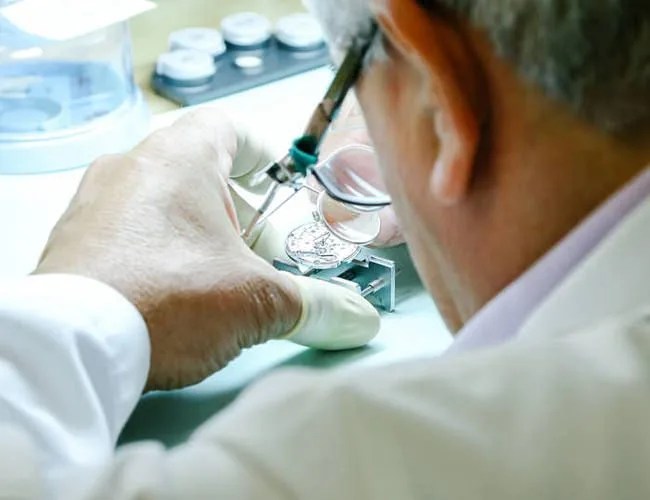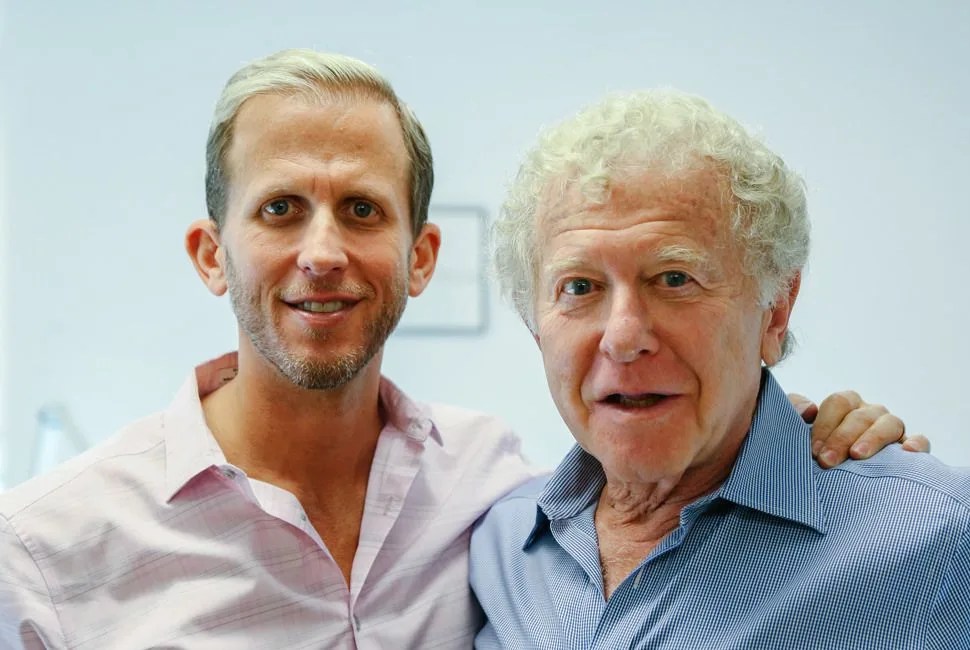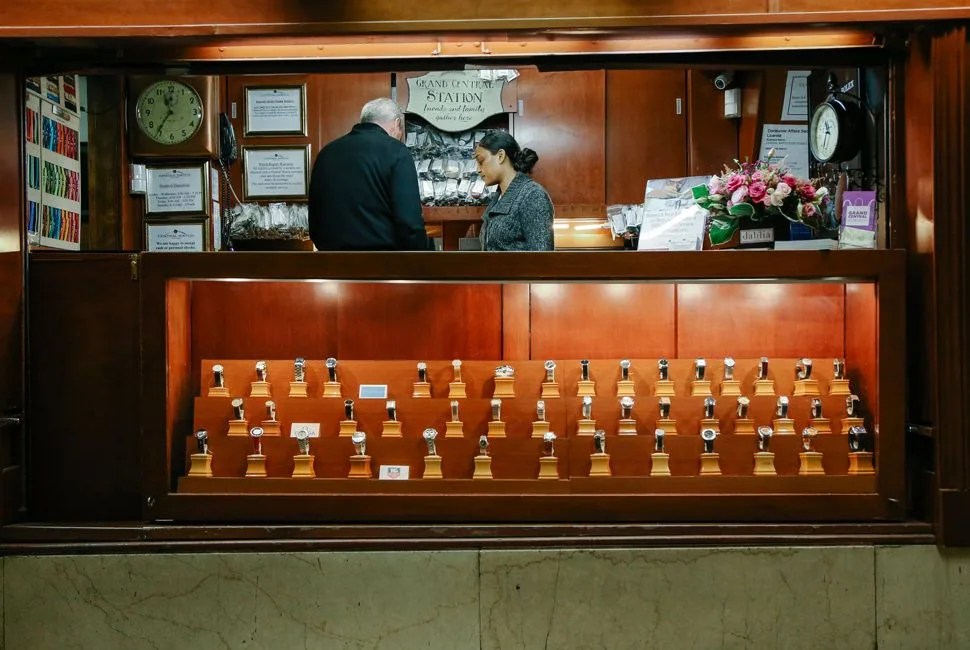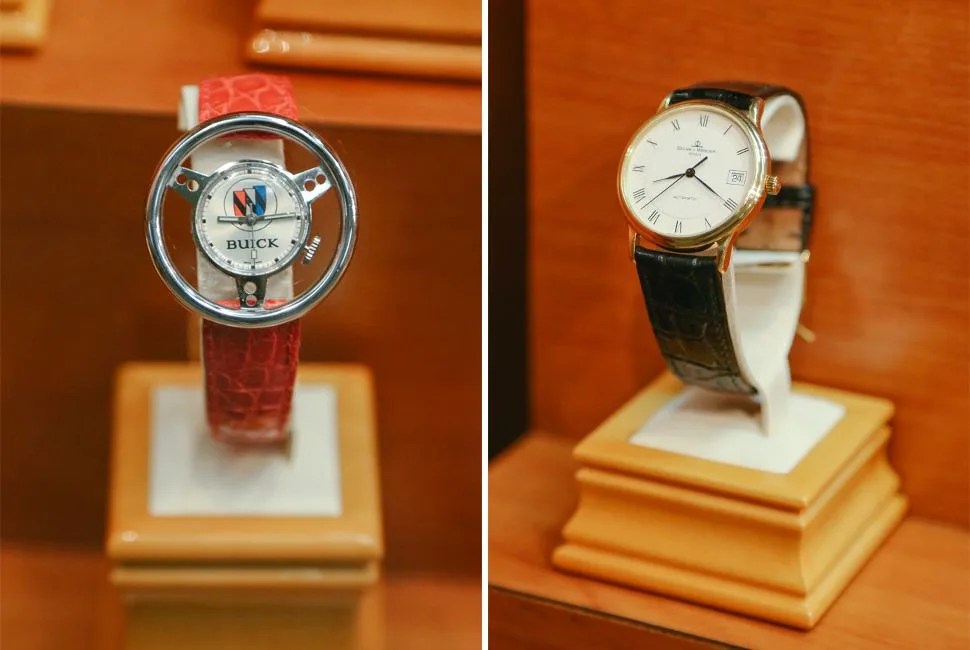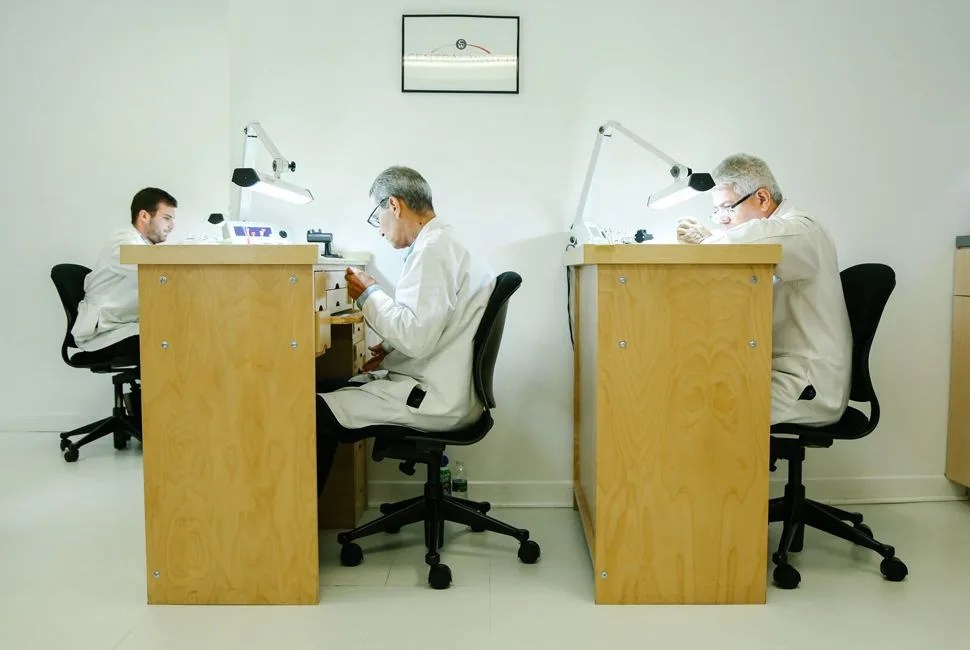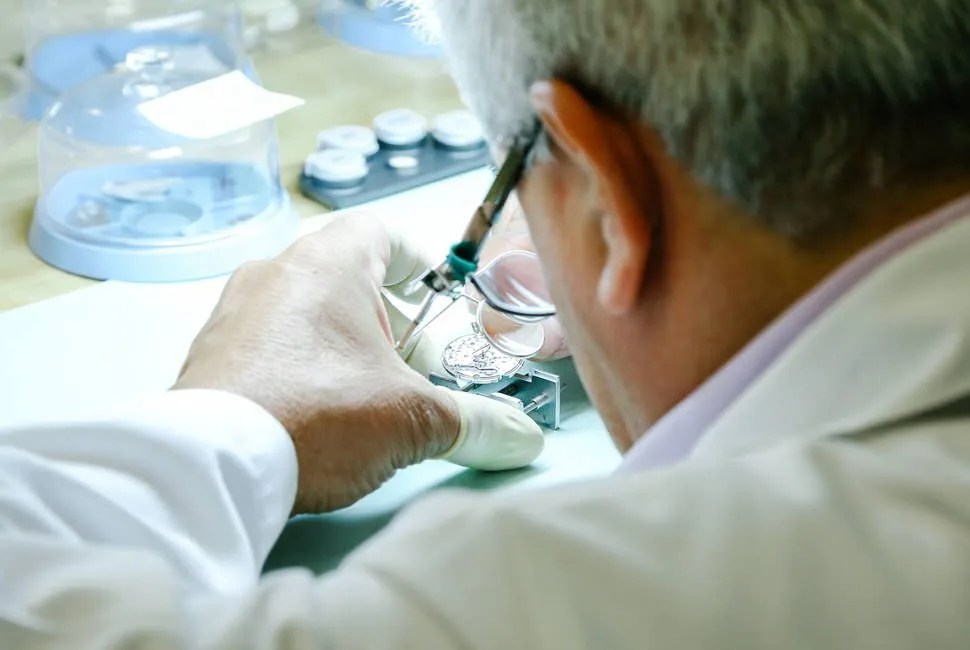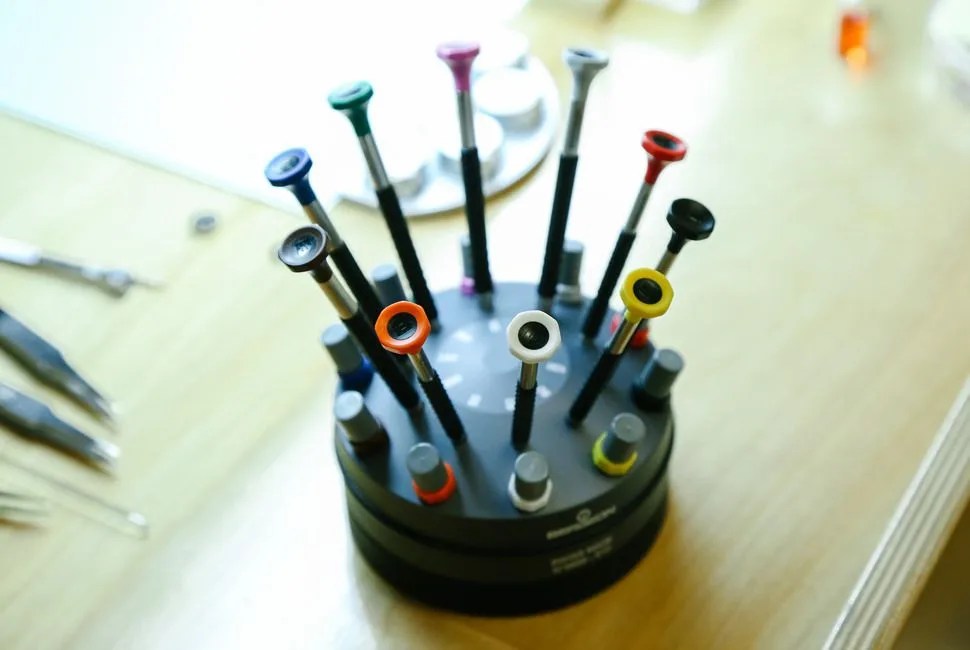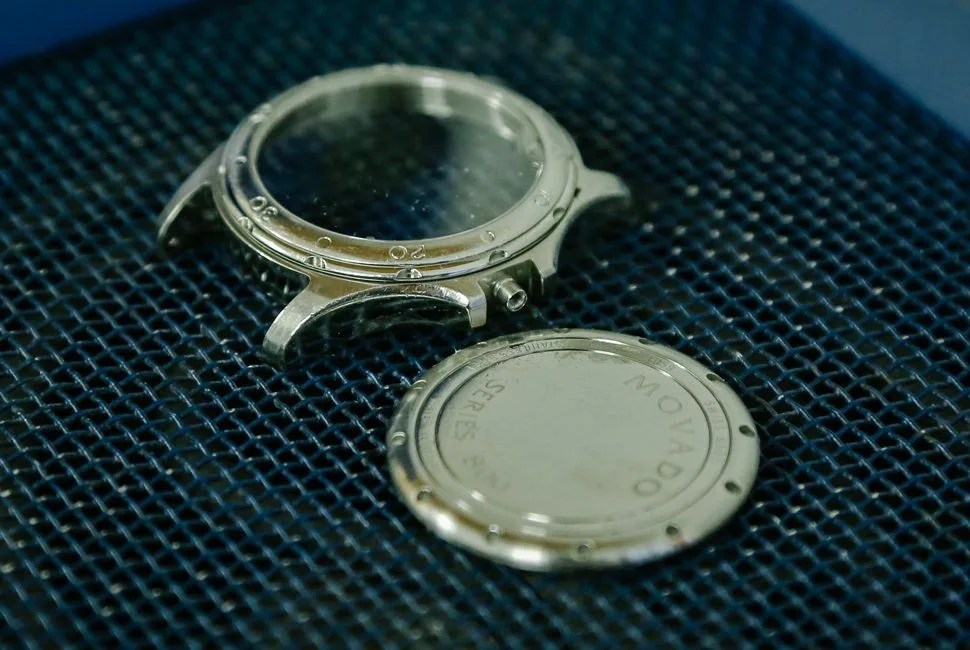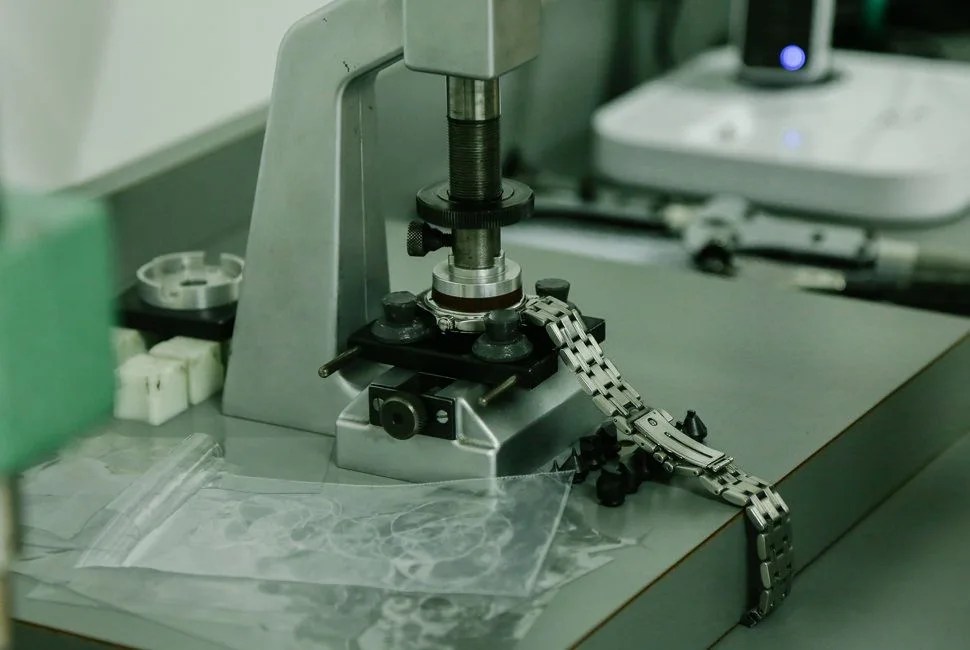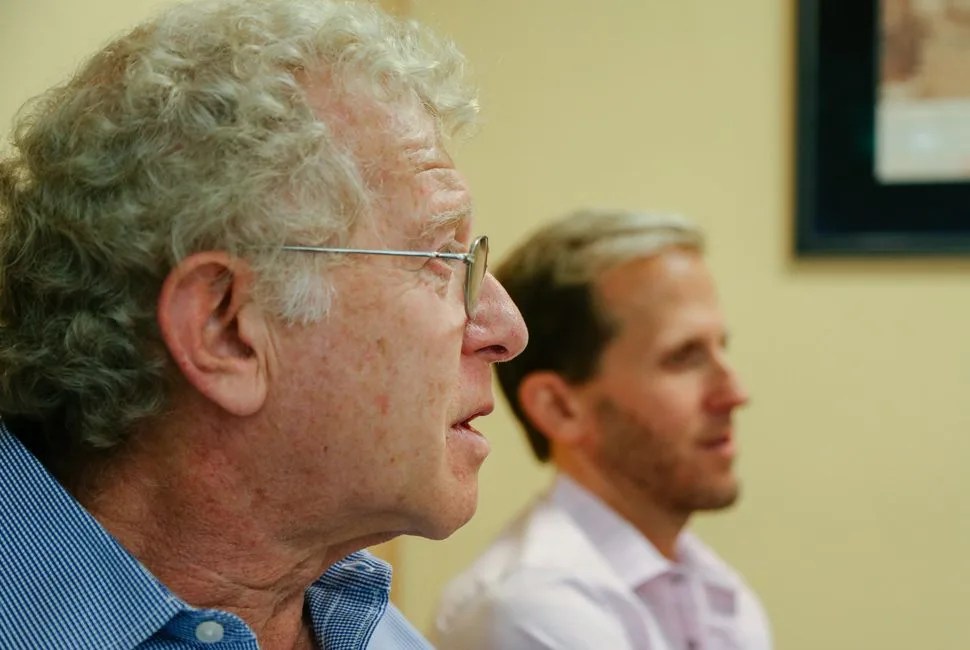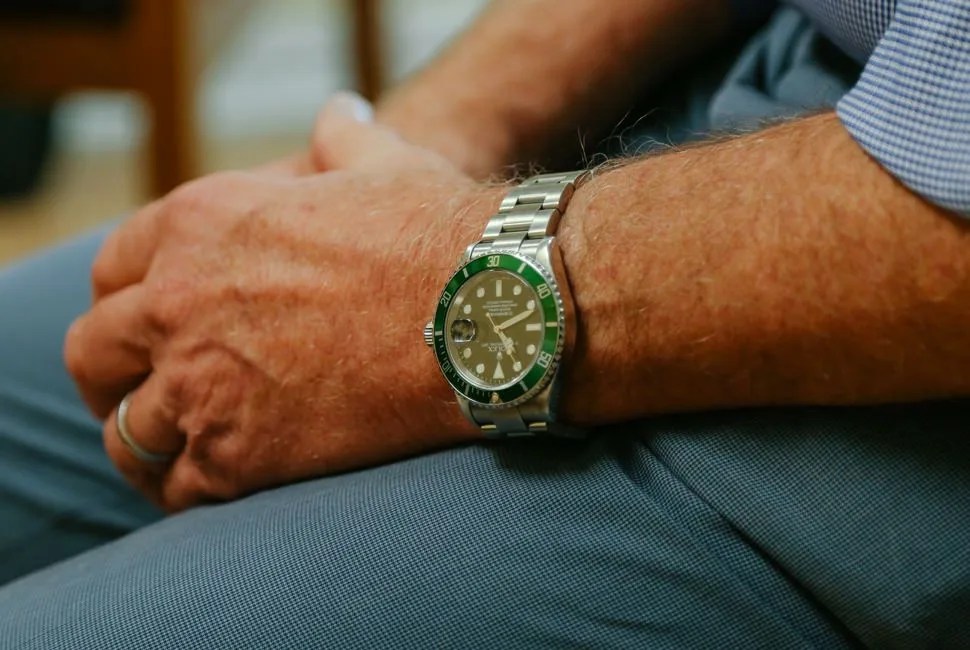Q: When you worked here as kids, did you do it out of a sense of duty, or did you come in by your own choice?
Steve Kivel: I think that for my dad, my grandfather needed him, so he probably felt more pressure to do it. For me, my dad always said, “Do not come into this store. Stay far away and become a doctor or anything else. Don’t be here — there’s no sunlight, there’s no air.”
LK: I felt there was more responsibility that my father put on me — I actually resented a little of it at the time, because it used to be on a Friday afternoon and all my friends were playing ball, and I was rushing in from Queens to get into the city to spend some time with him. But it worked, and it gave me more responsibility, and I developed more as a person, I believe, because of it.
Q: Steve, when you came along how old were you? Before then, were you in the shop, helping out?
SK: I was there all the time growing up — every holiday when I wasn’t in school I would come in… that gave me a taste for the industry. I always felt that I was a little bit shy when I was younger, but… being at that store — you’re like, on stage being there, you’re two feet above the other person — and when you’re talking down to people and they’re looking up at you, you’re performing all of a sudden. So that’s where I kind of came out of my shell. I liked the interaction with the customers, almost to the point where it felt like extended family. You know there’s been people who have been coming since day one to my grandfather, and have been working with my dad for decades, and then I’m there. They know my whole family, and then they’re learning about me, and I’m learning about them, and so it was a nice working environment working for my dad.
Q: What are some of the ways watches have changed over the years?
SK: It’s a different world today with watches. Watches weren’t important back then, they were just something to tell time with. It wasn’t something that would be passed down three different generations and increase in value and something you were going to have fifteen of. In your portfolio your stocks are worth “X”, your bonds are worth “X” and your watches are worth “X” — that’s the world we live in today.
Q: How has Grand Central changed since you’ve been doing this?
LK: Grand Central has been re-energized. When I started, more and more homeless people were there, they separated areas by putting partitions in — the beauty of the building has come back when they started renovations. Some things have changed — if you know where the Apple Store is, when I started there was a big Kodak picture that always took up that whole space.
SK: Where the food is now, it used to be a garbage dump. In the ‘30s there was a movie theater, but when I started, I used to take the garbage there. There were dumpsters, and rats the size of dogs. They cleaned it up pretty nice, it’s spotless now, but every once in a while when I’m walking there I think “man, I used to dump the garbage here.”
Q: When you started working for your dad, and when you started working for your dad, what were your concerns?
SK: I don’t know how he did it, because my grandfather was tough.
